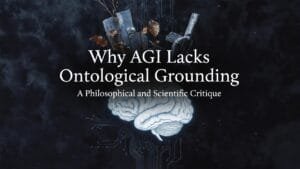The Death of Telos: How the Enlightenment Destroyed Aristotelian Purpose in the Name of Reason and Progress

Aristotle’s philosophy revolves around the concept of telos—the intrinsic purpose or final cause that defines the true nature of beings and things. This notion of final cause grounds ethics, politics, and metaphysics in an objective framework of meaning and direction. Yet, the Enlightenment, hailed as the pinnacle of reason and universal progress, systematically discarded this foundational principle, replacing it with a sterile, purposeless rationalism that has shaped modernity’s deepest crises.
Aristotelian Telos: Purpose as the Heart of Being
For Aristotle, understanding anything requires knowing its four causes: material, formal, efficient, and final. Among these, the final cause—telos—is paramount. It answers the question: Why does this exist? Everything in nature strives towards its telos, fulfilling its essential nature and achieving its good. Human life and political order are no exception; their telos involves flourishing, virtue, and the realization of true happiness (eudaimonia).
The Enlightenment’s Rejection of Final Causes
Enlightenment thinkers celebrated reason, science, and progress as humanity’s great emancipators. Yet in their zeal, they rejected teleology, viewing it as superstition, dogma, or theological baggage. By dismissing final causes, they reduced reality to mechanistic processes and material interactions. Progress became a blind, endless march without intrinsic meaning, and human purpose was severed from any universal or metaphysical grounding.
Consequences of the Loss of Telos
This rejection has had profound consequences:
- Ethics became relativistic, untethered from objective human nature.
- Politics devolved into administration and power games, losing sight of the polis’ true purpose.
- Society embraced materialism and utility as ends in themselves, fostering alienation and nihilism.
The Illusion of Universal Progress
What was sold as “universal progress” was often a mask for economic interests, power consolidation, and cultural imperialism. Without telos, reason was twisted into instrumental rationality—focused on means, not ends—allowing elites to manipulate “progress” narratives while masking deeper social and spiritual decay.
Restoring Telos: A Path Forward
To heal the fractures of modernity, we must reclaim the concept of telos—recognizing purpose, virtue, and the good as the foundation of life and politics. Only by rooting society in authentic ends can we move beyond the shallow promises of progress and rediscover true flourishing.
Conclusion
The Enlightenment’s abandonment of Aristotle’s final cause was not a triumph of reason but a tragic loss of meaning. Understanding and restoring telos is essential if we are to confront the spiritual and political crises of our time and build a world grounded in genuine purpose.





